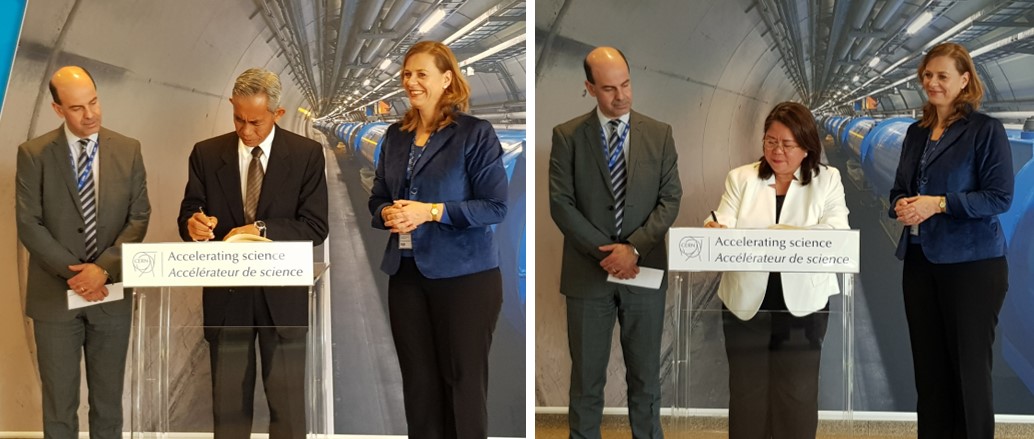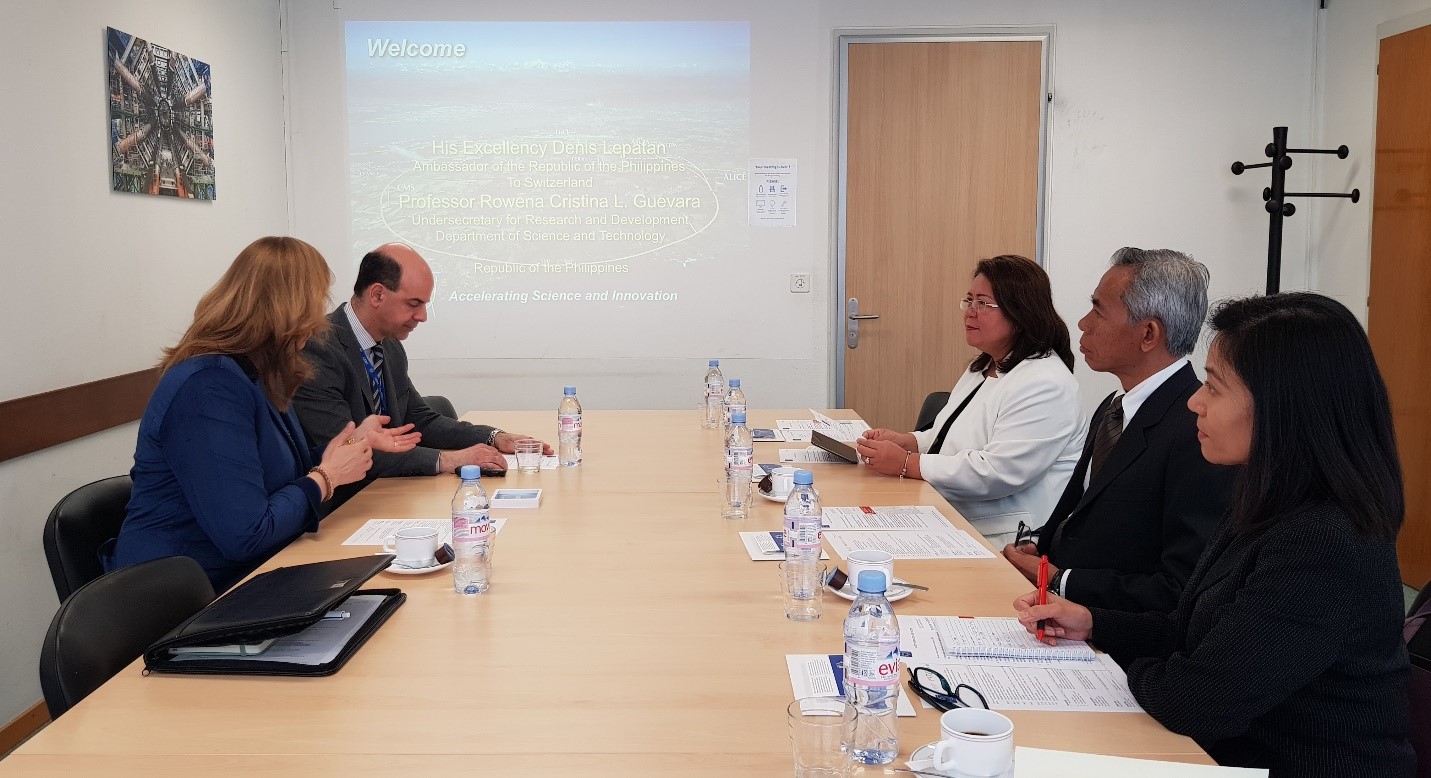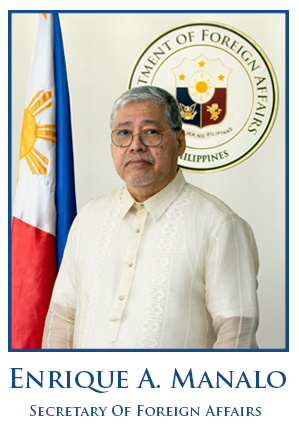Geneva, 12 April 2018 – New Philippine Ambassador to Switzerland Denis Y. Lepatan and Undersecretary Rowena Guevara of the Department of Science and Technology (DOST) visited the European Organization for Nuclear Research (CERN) and met with CERN officials to push for possible collaboration between CERN and the DOST, and the expansion of existing collaboration between CERN and the University of the Philippines (UP) to other institutions and fields of expertise.

Photos: (L) Ambassador Denis Y. Lepatan and (R) Undersecretary Rowena Guevara signing the guest book in CERN
During the visit, CERN officials, Prof. Dr. Emmanuel Tsesmelis, CERN’s Principal Physicist and Head of Associate Member and Non-Member State Relations, and Ms. Charlotte Warakaulle, Director for International Relations, briefed the Philippine officials on CERN’s structure, projects and activities, and discussed potential areas for collaboration with the Philippines, including CERN’s programs where participation of scientists from the Philippines is possible.
The Philippine officials invited Professor Tsesmelis and other scientists from CERN to visit the Philippines to meet with the science community in the country and conduct seminars and workshops for Filipino scientists and engineers. They welcomed the prospect of young Filipino scientists participating in CERN’s Summer Programme and other projects.
CERN and DOST are working on a Cooperation Agreement which is expected to be signed during the second half of this year.
CERN expressed appreciation to the Philippine Embassy in Berne for its initiatives in laying the groundwork for future collaboration between its scientists and their Filipino counterparts.

Meeting between CERN and Philippine Officials during the DOST visit in CERN
The meeting was followed by a visit to the Compact Muon Solenoid (CMS) experiment at the Large Hadron Collider (LHC), one of the largest international scientific collaborations in history involving 4,300 particle physicists, engineers, and technicians from 182 institutions in 42 countries. The visit to the CMS was followed by a tour of the Large Magnet Facility for the LHC.
CERN is one of Europe’s first joint ventures with a mandate of establishing a world-class fundamental physics organizations in Europe. It is one of the world’s largest and most respected centers for scientific research, and operates the largest particle physics laboratory in the world. It is used by more than 800 universities and by more than 112,000 scientific users across the globe. The institute develops technologies for accelerators and detectors, including those used in medicine for diagnosis and therapy, and training scientists and engineers of the future. Its Large Hadron Collider (LHC) is now the world’s largest and most powerful particle accelerator.
The visit to CERN was the third by Philippine officials in recent times, as Switzerland is one of the priority countries targeted by the Philippines for possible partnership in science and technology. The first was conducted in May 2017 by DOST Secretary Fortunato dela Peἡa and the second was in June, also last year, by former Philippine Ambassador to Switzerland Joselito A. Jimeno. END


